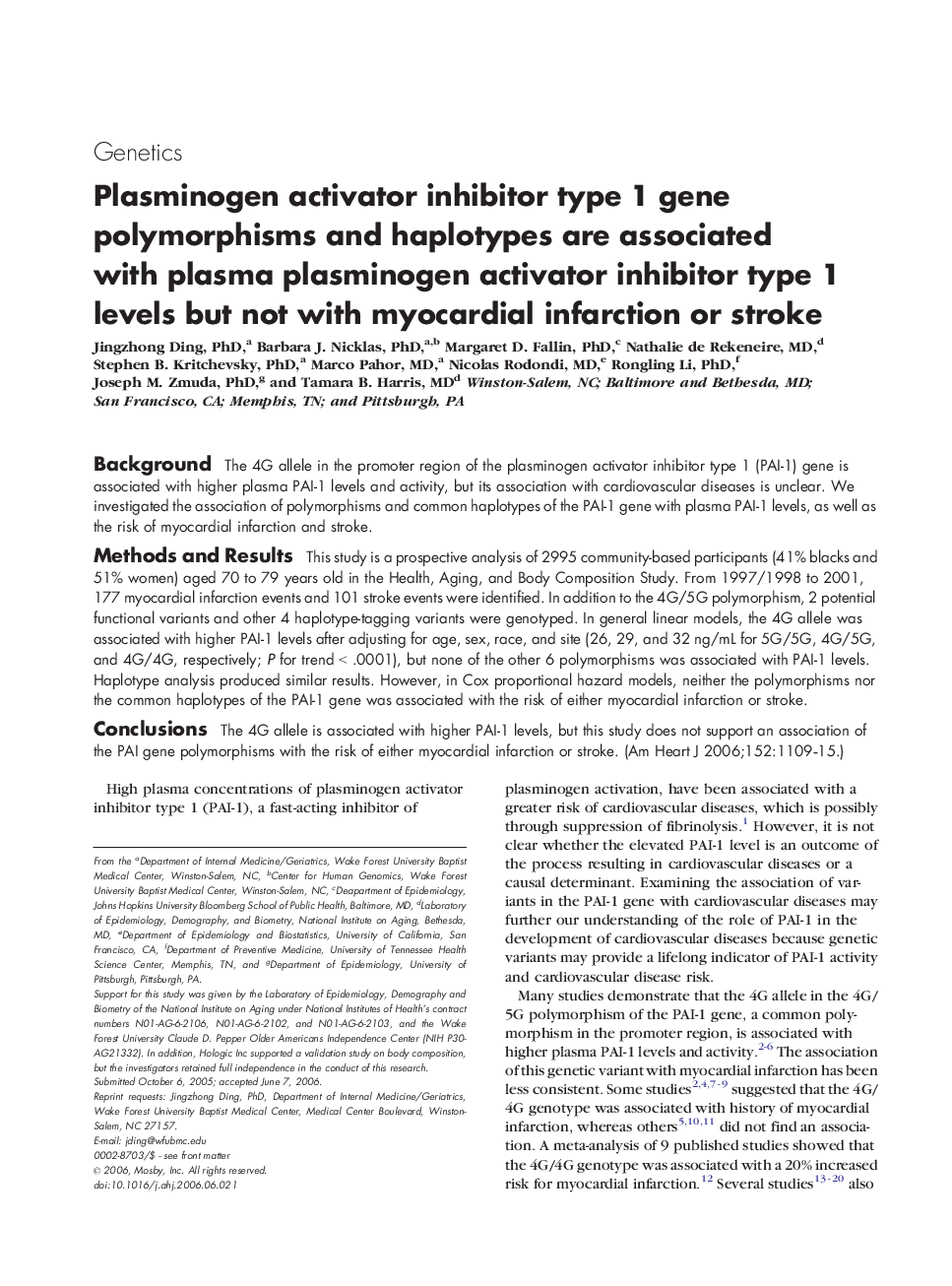| Article ID | Journal | Published Year | Pages | File Type |
|---|---|---|---|---|
| 2850073 | American Heart Journal | 2006 | 7 Pages |
BackgroundThe 4G allele in the promoter region of the plasminogen activator inhibitor type 1 (PAI-1) gene is associated with higher plasma PAI-1 levels and activity, but its association with cardiovascular diseases is unclear. We investigated the association of polymorphisms and common haplotypes of the PAI-1 gene with plasma PAI-1 levels, as well as the risk of myocardial infarction and stroke.Methods and ResultsThis study is a prospective analysis of 2995 community-based participants (41% blacks and 51% women) aged 70 to 79 years old in the Health, Aging, and Body Composition Study. From 1997/1998 to 2001, 177 myocardial infarction events and 101 stroke events were identified. In addition to the 4G/5G polymorphism, 2 potential functional variants and other 4 haplotype-tagging variants were genotyped. In general linear models, the 4G allele was associated with higher PAI-1 levels after adjusting for age, sex, race, and site (26, 29, and 32 ng/mL for 5G/5G, 4G/5G, and 4G/4G, respectively; P for trend < .0001), but none of the other 6 polymorphisms was associated with PAI-1 levels. Haplotype analysis produced similar results. However, in Cox proportional hazard models, neither the polymorphisms nor the common haplotypes of the PAI-1 gene was associated with the risk of either myocardial infarction or stroke.ConclusionsThe 4G allele is associated with higher PAI-1 levels, but this study does not support an association of the PAI gene polymorphisms with the risk of either myocardial infarction or stroke.
